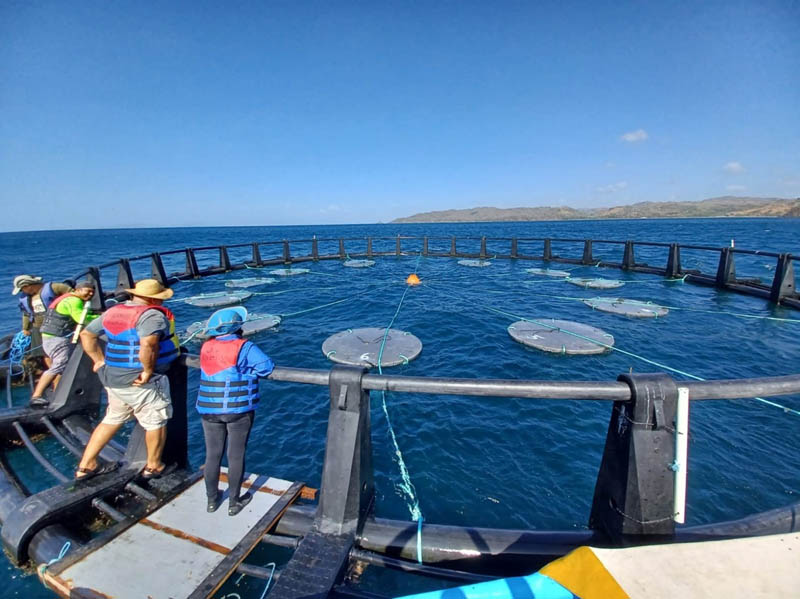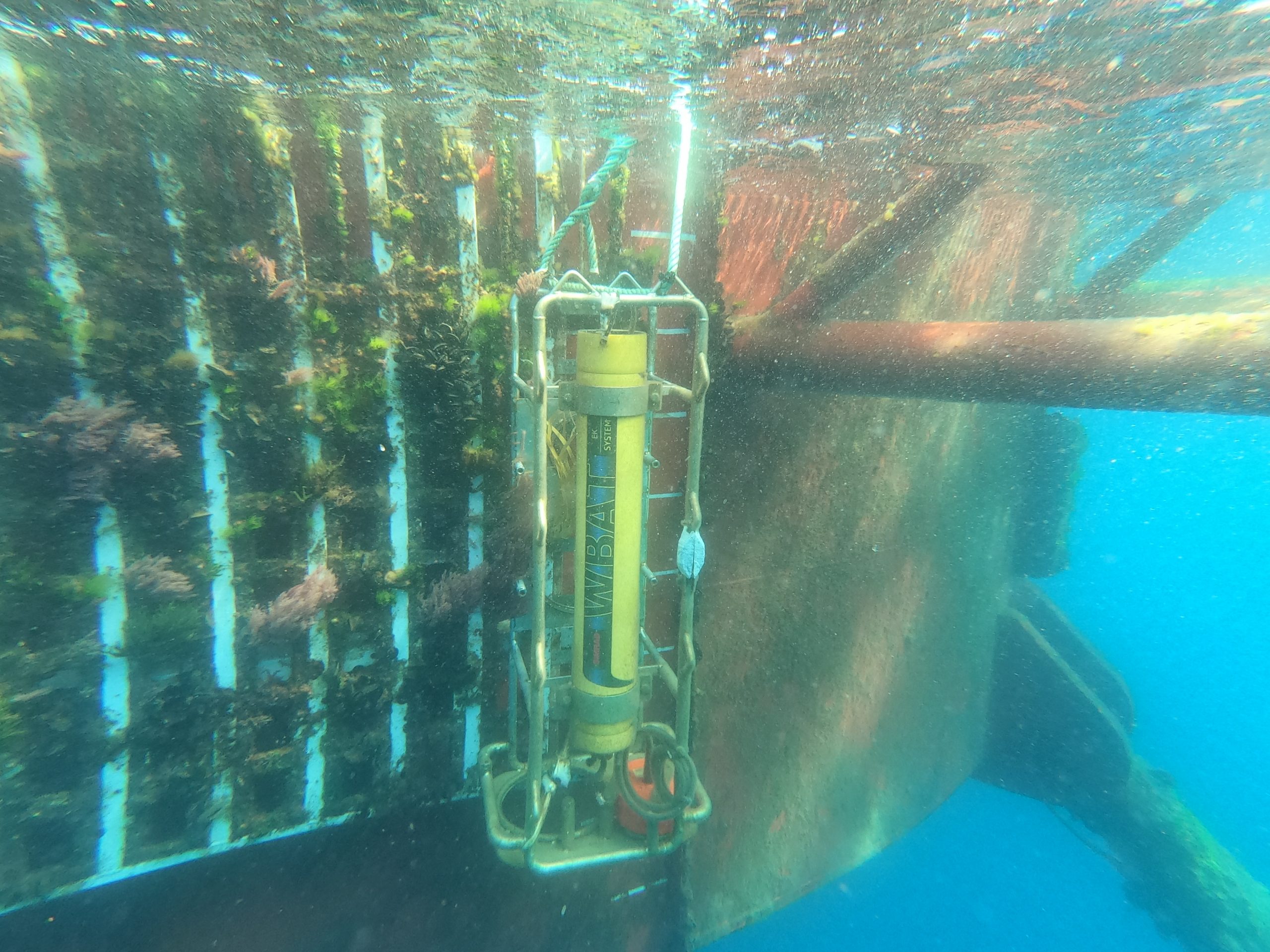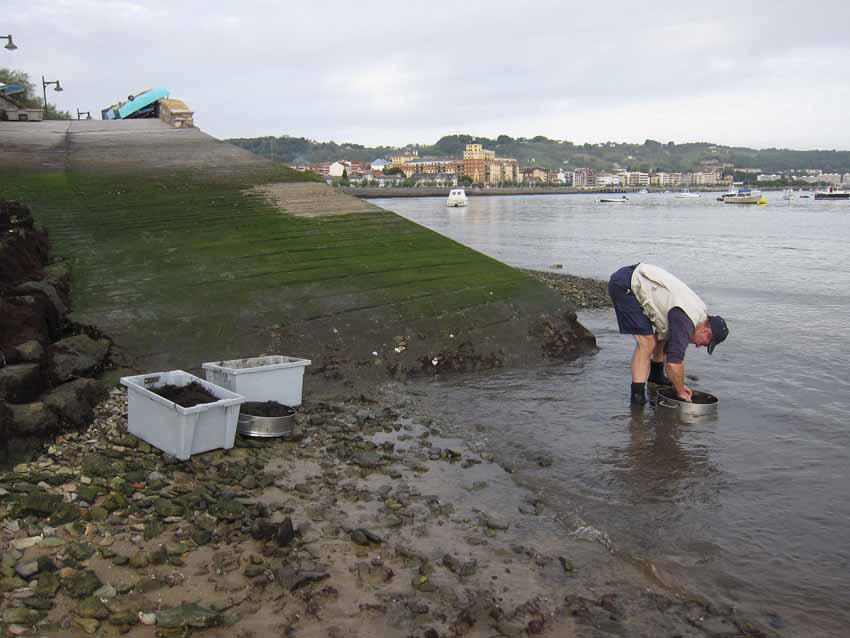New biodegradable materials for a more sustainable tropical tuna fishery
Últimas noticias
International Energy Day: AZTI's Innovations in Marine Renewable Energies
Scientists Find Marine Bacteria that Break Down a Key Compound for the Carbon Cycle and Global Climate
A new tool promotes the sustainable development of maritime sectors and marine biodiversity conservation
- In collaboration with the AZTI Technology Centre, validation tests have begun on the new floating and submerged fish aggregation devices developed by Zunibal.
- The tests have started with a first phase in a tropical, semi-controlled environment at the IATTC Achotines Laboratory facilities in Panama. In parallel, real-condition tests are underway with 210 devices distributed between the Atlantic and Indian Oceans to evaluate their effectiveness.
- The two solutions integrate a bio-based and compostable material, offering an innovative alternative that significantly reduces waste generation and promotes the sustainability of tuna fishing
14 May 2024- Fish Aggregating Devices (FADs) are tools used by the tuna fishing industry for their ability to concentrate fish. Their design has evolved to minimise their impact on the marine environment over the years. However, significant challenges remain, particularly in finding more sustainable materials and simplifying their configuration.
In response to these challenges, Zunibal has led the design of a new industrialised floating platform using a compostable bio-based material. The solution is targeted at the tropical tuna purse seine fleet, to minimise the generation of marine waste and the environmental impact on these ecosystems.
This innovation was presented to the fishing industry in November, during which Zunibal, in collaboration with AZTI and representatives of the major tuna fleets, began the process of preparing the trials of the platform in tropical marine environments.
During the preparation of the trials, and thanks to the close collaboration between Zunibal, AZTI and the industry, the opportunity was identified to adapt the platform, originally designed to function as a floating element of the FAD, for submerged use, more suitable for oceans such as the Indian Ocean.
To achieve this, the Zunibal team, in collaboration with AZTI, built and incorporated a submerged, non-meshed grid made from the same compostable bio-based material into the trials. This design, like the floating version, limits the number of elements required to construct these devices, making them easier to recover in the event of loss at sea or stranding.
“These two designs eliminate or significantly reduce the need for synthetic canvas and raffia, or flotation components such as foam floats (skittles). In this way, by using materials that improve the characteristics of the FAD, we can minimise its impact on the environment,’ explains Iker Zudaire, AZTI’s sustainable fishing expert.

Two test phases
The two new FAD prototypes will be validated in two test phases. The first phase is being carried out in semi-controlled tropical conditions at the Achotines Laboratory facilities of the Inter-American Tropical Tuna Commission (IATTC) in Panama (), having started on 1 March with an expected duration of 18 months.
The second phase will be carried out in real conditions, with the collaboration of companies such as Albacora, Nauterra, Pevasa, Echebastar and Inpesca, which will begin the deployment of FAD during May, June and July, including 60 floating platforms in the Atlantic Ocean and 150 submerged platforms in the Indian Ocean.
The main challenge is to study the effectiveness of the new material for the construction of FAD platforms and compare them with conventional ones to confirm that they not only contribute to reducing the environmental impact of the tuna sector but are also useful tools for fishing practice.
This project, which will run until 2025, is part of the work that AZTI and Zunibal are developing with the European tropical tuna purse seine sector and the IATTC to minimise the potential negative impacts of fishing activities on FADs.
The industry and the scientific community must work together to ensure the sustainability of marine resources, particularly in tropical tuna fisheries. The adoption of practices based on scientific research will ensure optimal operations and effective long-term management, which is essential to preserve both the ecosystem and the economic viability of the sector,’ concludes Álvaro Núñez of Zunibal.







